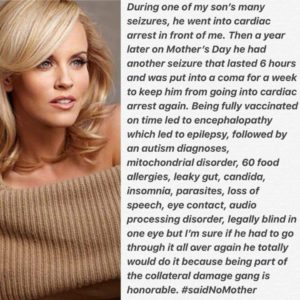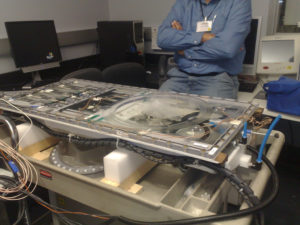There is a wonderful stem cell boosting ingredient called AFA also known as Blue Green Klamath Algae. Today I a newsletter telling me how good it is as an anti-aging supplement. Here is the newsletter on it.
On my 40th birthday my mother said to me: Son, if you’re going to fight the ageing process, know this: You are going to lose.
Very true and wise words.
However, my thinking is a little less fatalistic.
As you age, your body’s immune system weakens, making you more vulnerable to infections and disease…
If that is the case, then the opposite is also true: Strengthening you body’s defences can help slow down the ageing process.
But where does one begin?
By taking a handful of supplements every day?
Not at all!
In the last 10 years, an enormous amount of scientific research has been carried out on blue-green algae (scientific name Aphanizomenon flos-aquae, or AFA for short).
This algae is not only a powerful antioxidant (fighting inflammation and oxidative stress, and boosting immunity) but also contains a high concentration of nutrients (over 65 vitamins, minerals and enzymes), the complete spectrum of eight essential amino acids and ten non-essential amino acids, and has the most biologically active chlorophyll of any known food, which is instrumental in promoting good health.
One of the most exciting discoveries is that AFA stimulates natural killer cells – white blood cells that have an important function in immune protection by searching out and destroying cancerous and virally-infected cells.
Studies have shown that within just two hours of ingestion, AFA boosted the circulation of Natural Killer cells by a massive 40 per cent.
AFA is also one of the best sources of beneficial omega-3 essential fatty acids. Animal studies have shown that it significantly raises blood levels of eicosapentaenoic acid (EPA) and docosahexaenoic acid (DHA) – two omega-3 fatty acids that are known to lower the risk of heart disease and stroke, reduce inflammation and prevent depression.
Arthritis, eczema, depression…
The blue pigment found in AFA, called phycocyanin, has been found to be a strong antioxidant and anti-inflammatory. Not only does phycocyanin block the production of a particularly nasty inflammatory chemical called leukotriene B4 that is implicated in causing diseases like arthritis and eczema, it has also been found to be one of the most powerful natural COX-2 inhibitors.
COX-2 (cyclooxygenase-2) is an enzyme that causes inflammation, suppresses the immune system and promotes cancer. Pharmaceutical COX-2 inhibitors, often prescribed for arthritis, have recently been shown to carry alarming risks of heart disease or stroke, so having a safe and effective natural alternative like AFA is now even more important.
AFA’s benefits don’t end there – people taking it have reported improvements in their mood, mental energy, mental clarity and quality of life. This is not surprising, as AFA is a unique source of a mood-enhancing substance called phenylethylamine (PEA).
PEA is a chemical produced naturally in the brain and is responsible for the good feeling you get when absorbed in a pleasurable activity. In one study, a dose of 10mg a day of PEA reduced depression in 60 per cent of patients, a success rate better than many prescription drugs, with no unpleasant side-effects.
As you can see, there is no doubt that AFA packs a powerful punch when it comes to boosting your body’s defenses and slowing down the ageing process.








